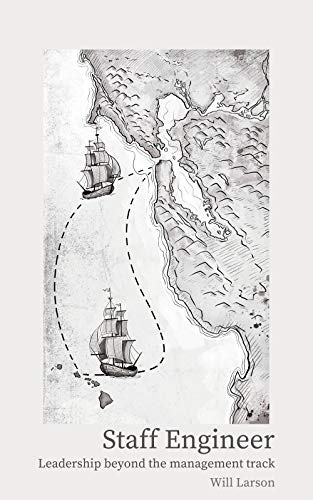Multipotentiality
Understanding how we are wired different.

What I am Thinking About
This blurb is about a TED Talk that I have watched a few times over the years. Titled “Why some of us don’t have one true calling” by Emillie Wapnick (Youtube). Its a brilliant conversation about the idea have having that one thing you were meant to do on this earth vs those of us that have many creative pursuits. That enjoy doing many things, building many things, learning many things. It can be isolating at times, feeling like you are stretching yourself too thin, failing over and over and over.
The notion of the narrowly focused life is highly romanticized in our culture. It’s the idea of destiny, or the one true calling, the idea that we each have one great thing we are meant to do during our time on this earth, and you need to figure out what that thing is and devote your life to it.
The idea at play here is “what if you’re someone who isn’t wired this way?” or “what if there are a lot of different subjects you’re curious about and many different things you want to do. This is really the first time I heard this explained by someone in a similar position. Often lost in the sea of the creative endeavors around us it can feel like we are drowning on a daily basis. Never making progress, never seeing any light at any end of the many tunnels we have built for ourselves. It really helped me understand that this isn’t a defect of my mind but instead its the flip side of the belief of our true single calling. Neither is superior to the other.
What is interesting about the idea of multipotentiality as a super power is the idea of rapid learning. When that one thing hits, when you find the spark, you go all in on that idea and ride that wave for as long as it goes. We are used to being beginners because we’ve been beginners so many times in the past. This is important because we’re less afraid of trying new things and stepping out of our comfort zone, which is the key to growth. The things we learn pursing one pursuit we can bring with us to another, and those to another. Compounding learning, skills and knowledge with each endeavor we tackle. “We are rarely starting from scratch”.
We have a lot of complex, multidimensional problems facing the world right now, and we need creative, out-of-the-box thinkers to tackle them.
These ideas are worth pondering for anyone who feels like they don’t fit into this world. Here it is again for viewing purposes: Youtube
What I am Reading
(Or listening to)
Staff Engineer (Amazon)
Kind of goes with the theme of this weeks page. This is a great resource for senior level engineers who are unsure about what the future looks like as far as their career path and goals.
At most technology companies, you'll reach Senior software engineer, the career level for software engineers, in five to eight years. At the career level, your company's career ladder won't require that you work towards the next promotion; being promoted further is an exception rather than expected. This is also when many engineers are first given an opportunity to move into engineering management.
Over the past few years, we've seen a flurry of books unlocking the engineering management career path, like Camille Fournier's The Manager's Path, Julie Zhuo's The Making of a Manager, Lara Hogan's Resilient Management, and even my own An Elegant Puzzle. The engineering management career isn't an easy one, but there are maps available to help navigate it. What if you want to advance your career without becoming an engineering manager? The technical leadership path remains relatively undocumented, hard to navigate, and inconsistent across companies. Staff Engineer is your guide to building your career towards a staff engineering role, receiving the title, and succeeding within the role.
That is it folks. Short this week and I missed last week. I think the theme though doesn’t need many words for it to resonate.


